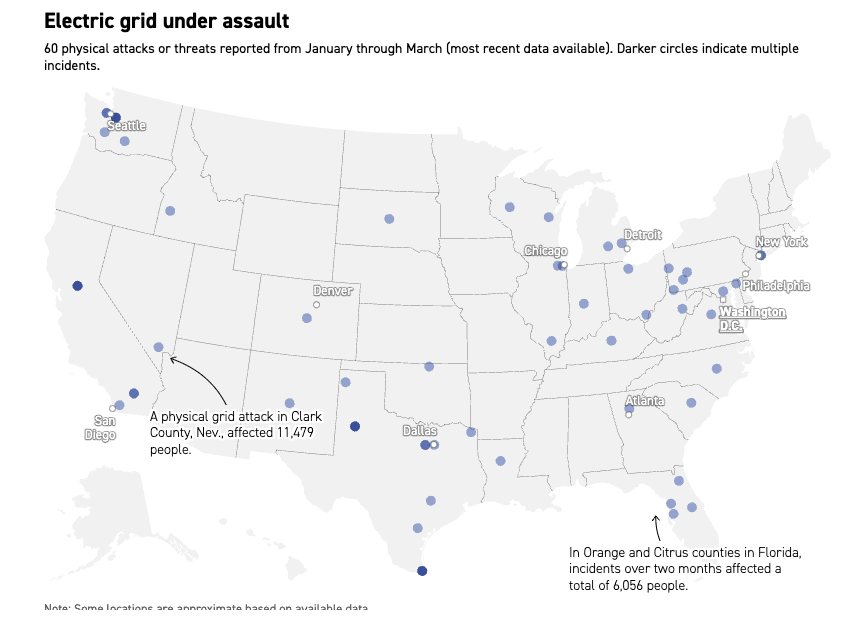
Maryland’s top utility regulator was watching the news one February morning when a headline blindsided him: Two suspects with neo-Nazi ties had been charged with plotting to take down Baltimore’s power grid.
Jason Stanek, the then-chair of the state’s Public Service Commission, said Maryland regulators were “caught flat-footed,” not hearing a word from law enforcement before the news broke — or in the months afterward. Federal prosecutors have alleged the defendants were driven by “racially motivated hatred” to try to cut power to hundreds of thousands of people in the state’s largest city, which has a predominantly Black population.
The FBI declined to comment on its communications with the Maryland commission. But Stanek’s experience is not uncommon.
A POLITICO analysis of federal data and interviews with a dozen security, extremism and electricity experts revealed that despite a record surge in attacks on the grid nationwide, communication gaps between law enforcement and state and federal regulators have left many officials largely in the dark about the extent of the threat. They have also hampered efforts […]










These attacks have been occurring over the past few years, but my understanding was that they were isolated and sporadic. This is the first I have seen of them recently. I was unaware that the attacks have been so extensive. One would have thought that with the billions we have spent as a country on security following 9/11 that communication between agencies would be a non-issue since that was supposed to be the major cause of 9/11. It is probably no coincidence that this article was published when it was. The question I have is: given the extent and nature of these attacks, should one of them succeed, will anyone in the security establishment be held to account?